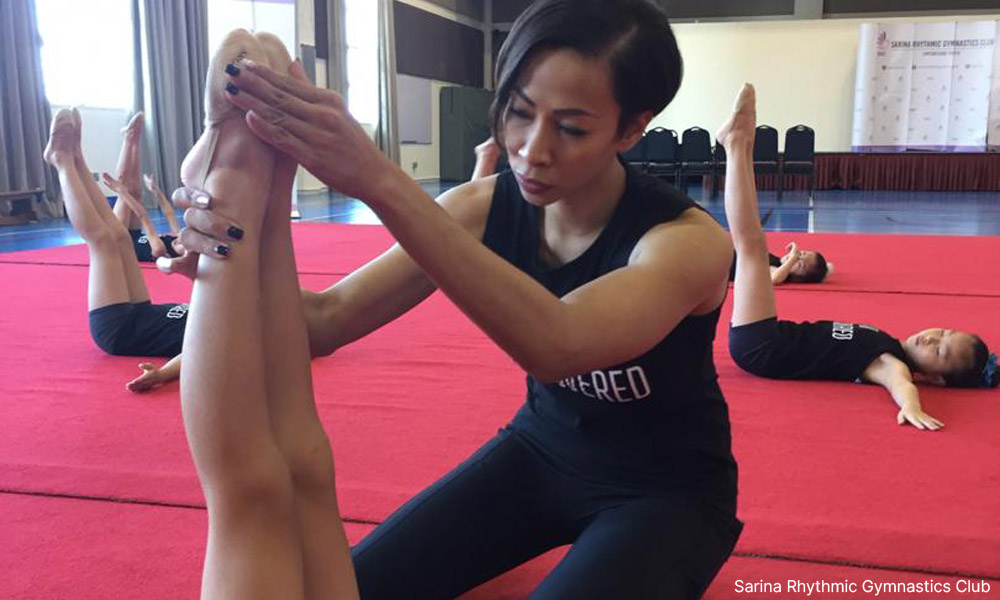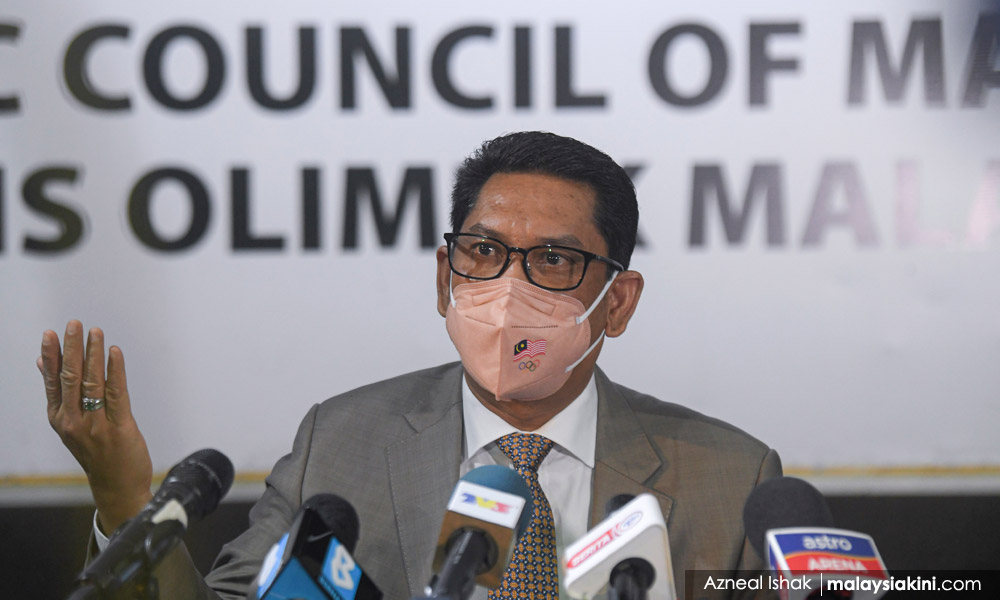Former national rhythmic gymnast and Commonwealth and Sea Games gold medalist Sarina Sundara Rajah is on a mission to advocate for a safe sports environment in Malaysia.
Sarina, 40, is the founding principal of Sarina Rhythmic Gymnastics Club (SRGC), the founding president of Safe Sport Malaysia and a public speaker.
Going beyond her role as a teacher and coach, she is an activist who wants to ensure that every athlete feels safe pursuing the sports they love and currently trying to get a Safe Sport Act passed in Malaysia.
Sarina was a teen when she experienced sexual harassment in the sporting arena.
“I was about 14 or 15. If you compare what I went through with some other athletes, mine may not be as serious. But it happened.”
Sarina said one incident took place during a team-building exercise with athletes from other sports.
“The youngest athletes were teamed up with older athletes. So we were in a circle, playing cards. This guy seated beside me placed his card on his penis and wanted me to reach out there and get it.
“At that time, I knew it was inappropriate, but I did not know what to do and who to speak to. So I just ignored it,” she recalled.
Sarina also recollected another incident involving a massage therapist.
“My massage therapist was a male. I felt that one or twice, his hands reached into parts that he shouldn’t. It is like you have a gut feeling, but you just don’t know what to do,” she said.

Sarina, however, said her experiences were nothing compared to what Malaysia’s national swimmers and divers or the US women’s gymnastic team faced.
Earlier this year, several athletes, including national diver Pandelela Rinong and former national swimmer Cindy Ong came forward to reveal sexual abuse and harassment suffered by athletes at the hands of sports officials.
From athlete to coach
Sarina won the gold medal in the Commonwealth Games in 1998 and Sea Games in 2001.
She injured her knees during preparations for the 2004 Athens Olympics. Despite surgery, she did not return to competitive gymnastics.
She founded SRGC in 2004 to share her knowledge and love of gymnastics.
Sarina became fascinated with gymnastics after watching the 1991 Sea Games.
“I was 11. I remember sitting in the living room at my grandmother’s house watching the 1991 Sea Games, and Farah Hani Imran was doing the ribbon routine. I told myself that I wanted to be exactly like her.
“The next day, I went to school and asked if they had rhythmic gymnastics classes, and they said yes. From then on, it was just convincing my parents to let me do rhythmic gymnastics, and that I was how I became a gymnast,” she explained.
Sarina said that sports are more than just physical; it is also the training the mind to achieve peak performance.
“Sports have shaped my values, my attitude and my beliefs and made me what I am today. I am grateful for my experience in sports, and I share this knowledge with my girls and their parents,” she said.
Sarina said that sometimes she has to deal with students who seem to suddenly lack interest in the sport. She said that as a coach, she also needs to know behavioural theory to find out why an athlete behaves a certain way and to motivate them.

The students at SRGC range from ages three to 16. Currently, all her students are girls.
They are also taught the principles of safe sports so that they know what to do when faced with sticky situations and how to conduct themselves.
A safe sport law
In 2020, Netflix aired a documentary, ‘Athlete A’, which recounted how former USA Gymnastics national team doctor Larry Nassar sexually assaulted at least 265 identified victims over two decades before he was finally arrested and sent to prison.
It was this documentary that convinced Sarina a Safe Sport Act was necessary for Malaysia.
She said because of the Nassar case, the US enacted the Safe Sport Act in 2017. This was followed by the Athletes Empowerment Act, which builds on the Safe Sport Act.
“Their law is a very comprehensive one that covers not only the safety but also the empowerment and welfare of the athletes.
“I think the Safe Sport movement gained traction mainly because of the ‘Me Too’ movement and the highly publicised abuse cases such as the case of Larry Nassar, and now with increased attention to diversity and inclusivity, and changing approaches to coaching,” she said.

Sarina pointed out that the US is the only country that has such a law, while other countries have guidelines.
She said if Parliament passes a safe sports law, it would be the second country in the world to have this type of legislation.
‘He gets it’
Sarina’s activism has led her to be in contact with government officials such as Youth and Sports Minister Ahmad Faizal Azumu.
She is confident that a safe sports law could be passed with the minister’s backing as he sees the need for the legislation to protect the country’s athletes.
“I will tell you this about Faizal. He has been in the news for all the wrong reasons. Based on my personal experience - I met him in November last year - when I presented him with a Save Sports Act for athletes, he got it. He immediately understood.
“I understand that his priority is safeguarding the athletes. I may not agree with some of the strategies that have been adopted or the way things are done, but I know there is the political will to get this act passed.
“I am very thankful that he said yes and his people in the ministry have helped facilitate the process,” she said.

In January this year, Faizal told Malaysiakini that the Youth and Sports Ministry is working on laws to ensure the safety of athletes, and his officers have been tasked to work on developing a Safe Sport Act.
“…The ministry and I are committed to creating a safe environment for our children and athletes. And the best way this can be achieved is through strong legislation,” said Faizal. - Mkini




No comments:
Post a Comment
Note: Only a member of this blog may post a comment.